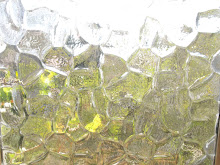Housekeeping - Marilynne Robinson
This is a lovely, heart-achingly lonely little book with a lot of space in-between everything that moves the plot along and silence between the characters. This has remained one of my favorite books ever since I read it 7 years ago.
The Life and Times of Michael K - JM Coetzee
Creates a somewhat similar atmosphere to Housekeeping, but written by a man. You almost wouldn't know the story is set in apartheid South Africa except in the glimpses you see of the world flitting by peripheral to the main character.
How Buildings Learn - Stewart Brand
A spectacular book about how buildings age and what that means for their design. Very well documented as well as opinionated and engaging. Executed perfectly and highly accessible to anyone, whether informed on the topic or not.
A Year on the Wing - Tim Dee
A beautiful, poetic book about bird watching. The observations are surprisingly fresh and stunning, and the book is done so well it's a worthwhile and wholly engaging read whether you care about birds or not.
Memory of Fire trilogy - Edwardo Galeano
Galeano blurs fiction and nonfiction is this poetic telling of the history of abuse and imperialism in the Americas. The three book trilogy progresses chronologically and reads as short vingettes that are focused on individual people, experiences and moments in a truly remarkable way. I've never seen anything else like it.
Infinite Jest - David Foster Wallace
The epic 1100 page novel about tennis and drug use by my favorite author. 200 pages of the text is academic style footnotes in which whole characters are introduced and tangential narratives unfold. Wallace is the most intelligent and observant writer I've ever read. His nonfiction is also excellent. His short stories are awful, though, and you shouldn't read them. Keep a dictionary handy when reading this, because there will be about 5 words on every page that you've never seen before. Wallace has a preference for using characters who have read the OED (Oxford English Dictionary) in its entirety and he once wrote a book review of a new dictionary. I'm deeply sorry that he hung himself last October.
Invisible Cities - Italo Calvino
This is a funny, haunting, beautiful book in which Marco Polo describes fantastical cities he has traveled to in the empire of the great Kubla Khan. Each chapter introduces a single city, focusing on its inhabitants and the rules of its operation. This book draws you into its reality, creating a world in which the basic laws of physics seem to be determined by poetic impulses and wild imagination. Also worth reading by Calvino is Cosmicomics, which is a funny, anthropomorphic take on the creation of the universe and If On A Winter's Night A Traveler, which is equally experimental.
House of Leaves - Mark Danielewski
This is a touch too experimental to be a perfect book, but I included it here because it's the only book that has ever physically scared me in my adult life. The book reads like a horror movie, but in a much more cerebral and unsettling way. The positioning of text on the page is unorthodox to say the least, and gets wilder as the book descends, but somehow, the effect is successful and Danielewski pulls off what anywhere else would have seemed a trite and cheesey special effect to amplify the eerie world of the story. Be patient with it, because it's different than what you're used to expecting from books. Give yourself over to it completely. Only read it in the dark, and only when you're alone.

1 comment:
I'm so glad that I inspired your book list! I love lists, especially ones with good books on them.
I remember you telling me about House of Leaves and I was thinking about that the other day trying to remember the title. It sounds like quite the experience. I might have to get my hands on that one, but I think I'll wait until fall, too spooky for summer reading.
Post a Comment